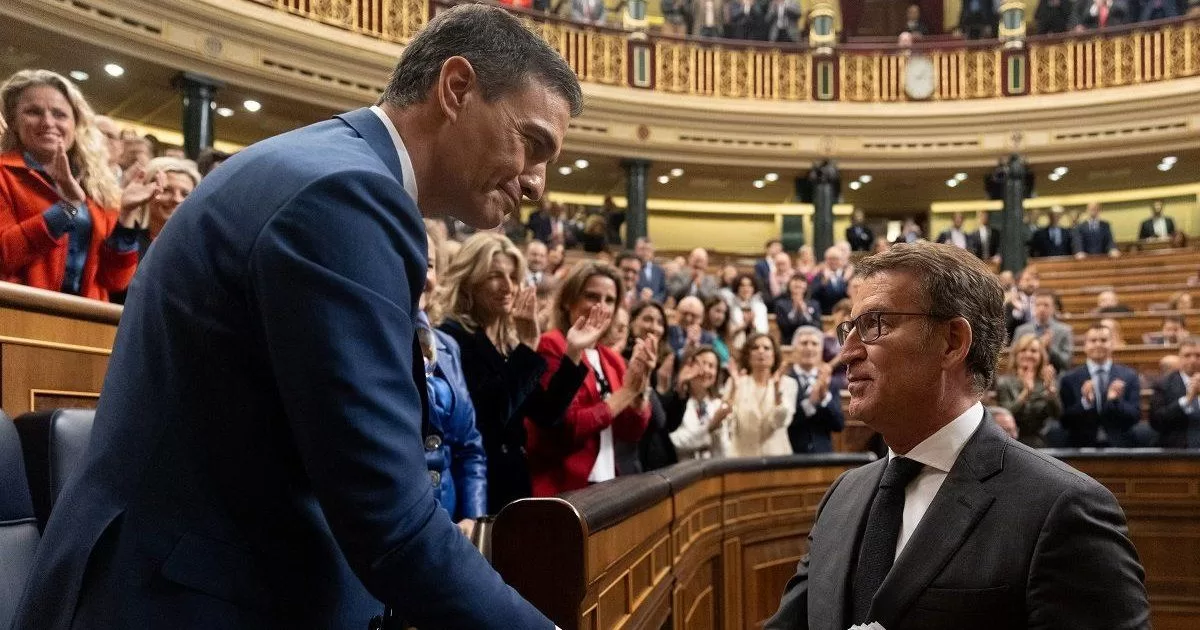The presidential camp hopes in particular for favorable votes from the socialists and an abstention from the environmentalists, so that the text is adopted.
The National Assembly is voting on the renewable energy acceleration bill on Tuesday, a vote that could be close due to the abstention of environmentalists and the hesitation of socialists.
“There were discussions until the end and a lot of calls this weekend”, we slip from the side of the Ministry of Energy Transition, which counts and recounts the forces present before the solemn ballot at the end afternoon, at the end of this first reading.
Environmentalists want to “put the pressure on”
A ministerial source assures “not to be worried” about a favorable vote, but “not with a clear lead”. An abstention from part of the left is enough for the Macronists. But they would have hoped for more momentum around a text that aims to deploy wind and photovoltaic projects more quickly, and which had obtained broad approval from the Senate in early November.
“This bill accelerates renewable energy projects by several years. It is a fact. So either the (left) opposition groups are consistent with their presidential and legislative program (…), or they remain in the political posture and choose the opposition in principle”, attacks the Minister Agnès Pannier-Runacher.
Environmentalists have already promised a “waiting abstention” to “put the pressure on” before the sequel. “We expect better”, for example on the deployment of renewables on existing buildings, underlines the leader of the EELV Marine Tondelier party.
The PS could vote for
“They do not grasp the outstretched hand”, criticizes the Macronist deputy Pieyre-Alexandre Anglade, who fears that this will strengthen “those who say in the majority that we should only work with the right”.
The rebellious will abstain or vote against, and the Communists are preparing to oppose the text. At the PS, the group intends to decide on Tuesday morning between abstention and support. And the government also hopes to rely on the small independent group Liot.
If the Assembly gives the green light, a joint commission will bring together deputies and senators, a priori on January 24, to try to establish a compromise text, with a view to final adoption in February.
“Vigilance”
At the Palais Bourbon, the executive quickly understood that the right would vote against this text. Because the LR deputies have adopted a harder line than their colleagues in the Senate. They dispute “unjustified derogations granted to wind power”, “intermittent energy” and denounce a “salami” of energy texts.
A bill dedicated to nuclear power arrives in the Senate hemicycle on January 17, before the future multi-annual energy program. On the far right, the RN castigated the “nuisance” of wind turbines throughout the discussions:
“It twists the eyes and the brain”, according to MP Pierre Meurin.
Wind turbines at the heart of the debate
This bill aims to reduce installation times and catch up with France’s significant delay in terms of renewable energies, which represent only 19.3% of gross final energy consumption, well below European neighbors. . The text insists in particular on photovoltaics and wind power at sea, in line with the ambition displayed by Emmanuel Macron to multiply by ten by 2050 the production capacity of solar energy to exceed 100 GW and to deploy 50 offshore wind farms to reach 40 GW.
Among the main debates: the sensitive subject of the approval of mayors before installing wind turbines and solar panels. In line with a compromise found in the Senate, the Assembly validated a planning device, with priority “acceleration” zones for installing renewables, subject to the approval of the municipalities.
The measure has tensed the left, which fears the return of the “veto of the mayors” demanded by the LR deputies for the whole of the territory. Among NGOs, WWF generally judges “the exercise interesting but unfinished”, and sees in the planning mechanism with the municipalities, “a bit of a gas plant”.
On the professional side, the president of the renewable energies union Jules Nyssen notes “positive points” on access to land for photovoltaics, but also “setbacks” and “points of vigilance”, with for example the withdrawal of the rebate on residents’ bills. The Assembly favored a socialist proposal to finance broader territorial measures: funds for households in fuel poverty or for biodiversity.
“Two rooms, two atmospheres”
For Matthieu Croissandeau, political columnist for BFMTV, the deputies adopted an “attitude sometimes at odds with their fellow senators of the same sensitivity”. According to him, between the Senate – “where there was a real work of parliamentary co-construction” resulting in a text voted by a very large majority at first reading – and the National Assembly, it is “two rooms, two atmospheres”.
“Where is the coherence?”, he asks, both to the address of the left and the right.
“The arguments are quite pathetic. The text is not ambitious enough, say the ecologists: is that why we have to deprive ourselves of progress? There is no question of giving the government a gift the day it presents pension reform do we still hear but what is the relationship and where is the gift?”, analyzes Matthieu Croissandeau.
Finally, he recalls that “361 amendments were adopted”, “including 167 from the opposition”.

